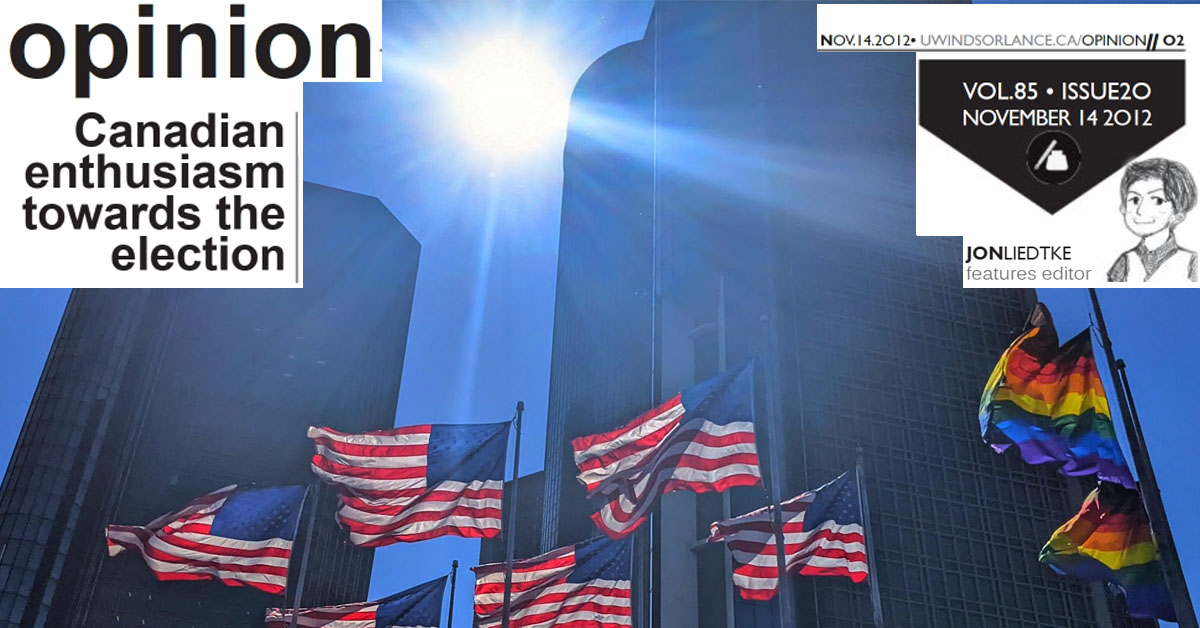UWindsor Lance
Issue 20, Volume 85
Nov. 14, 2012
Jon Liedtke
I was impressed by the number of Canadians who decided to follow the U.S.
presidential election.
In the weeks leading up to the election, even during the debates, my Facebook feed was filled with quotes, stories, links, pictures, memes and videos about the two candidates, their positions on various economic, social and military issues, and even about a few regarding state ballot initiatives (predominantly those surrounding the issues of marriage equality and marijuana).
As someone who spends a large majority of my time consuming politics, it was heartening to see how many people were actively following the election.
However, after reading a post made by a friend on Facebook questioning why Canadians seemed more interested in the U.S. election than their own, I began to
compile a list of reasons why this might be the case.
I preface thar I am not surprised Canadians seem more interested in the [U.S, election than their own. Having said that, here are my suspicions as to why.
The U.S. is a global power and, as such, the results of the election not only affect
American citizens, but the world. The mainstream media has a commercial interest in the election as it brings in large amounts of advertising dollars (especially with the passing of Citizens United, which allowed for unlimited political donations by corporations) and, therefore, they tend to focus on the American election more so than they would say, ours.
Living in a border city, the results of the U.S. election have direct impacts on we are part of a broader region with intertwined economic interests.
In Michigan, residents voted on Prop. 6, which would have amended the state constitution and require residents to vote on all new bridge projects in the state.
This initiative was funded by Ambassador Bridge owner Matty Moroun, who has a strong financial incentive to stop the construction of the new Canadian funded bridge.
In Canada, we do not elect a leader, but rather a party. In America, the voters get
to decide on the president (technically they vote for electors in the Electoral College who then vote for president). Thus, in the U.S. a Cult of Personality develops, and accordingly, there is a stronger perceived importance in the
individual vote.
It’s a good thing that people are paying attention to politics regardless of whether or not it’s their own. This means people have an interest, at some base level, in how the affairs of the state are run.
It only takes a base level of interest for someone to become a diehard junkie,
Perhaps, all those Facebook statuses I read about the United States election will one day be about the numerous issues that resonate deep within our parliamentary democracy. Kid yourself not, Canadian politics is interesting, often times exciting, and intimately more impactful on your daily lives.
Canadian enthusiasm towards the election
Issue 20, Volume 85
Nov. 14, 2012
Jon Liedtke
Page 2
Jon Liedtke was the Features and Opinions Editor, Advertising Manager and Deficit Consultant at the UWindsor Lance.




Leave a Reply